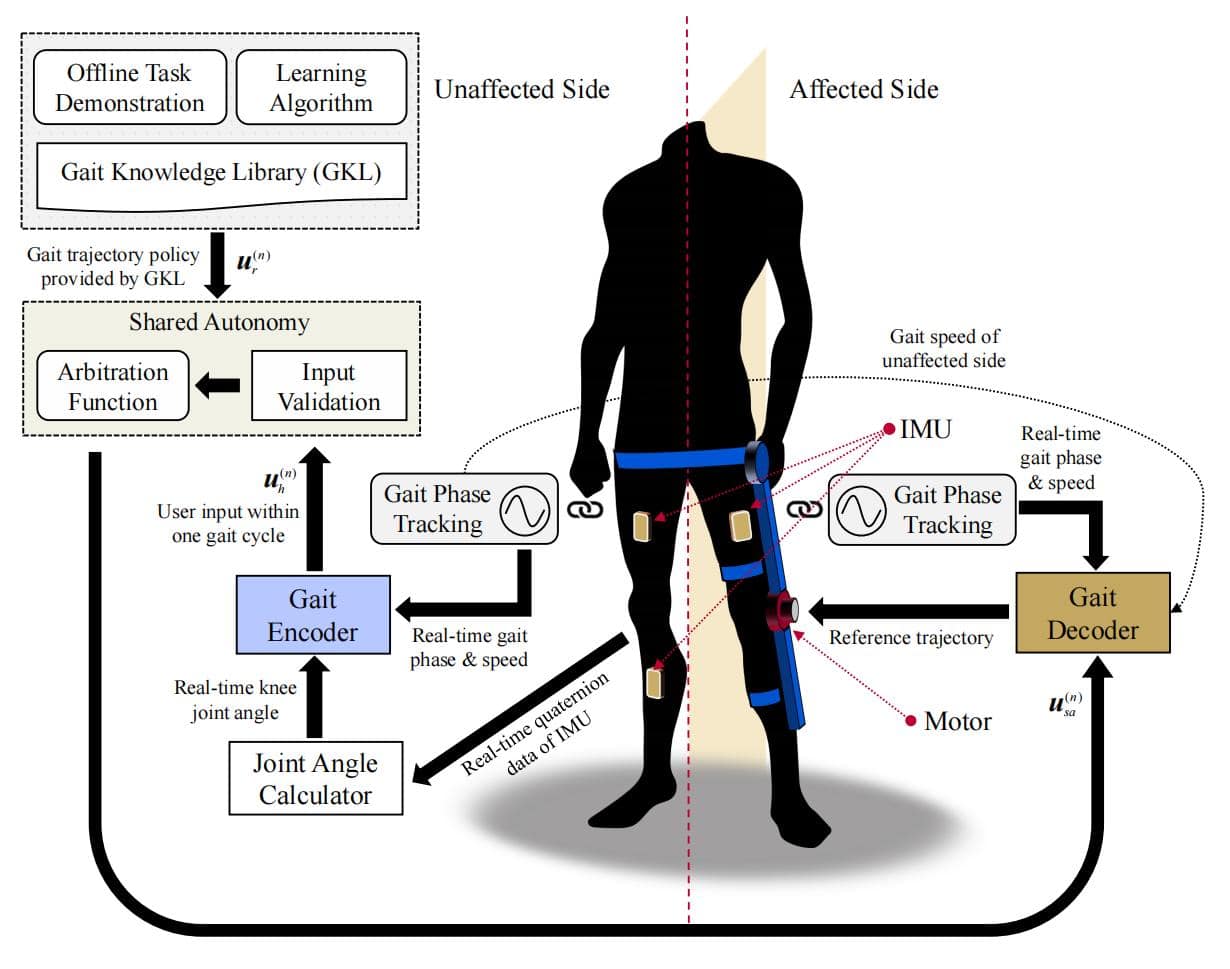Adaptive Symmetry Reference Trajectory Generation in Shared Autonomy for Active Knee Orthosis
IEEE Robotics and Automation Letters, IROS 2023
Gait symmetry training plays an essential role in the rehabilitation of hemiplegic patients. Robotics-based gait training has been widely accepted by patients and clinicians. Reference trajectory generation for the affected side using the motion data of the unaffected side is an important way to achieve this. However, online generation of gait reference trajectory requires the algorithm to provide correct gait phase delay and could reduce the impact of measurement noise from sensors and input uncertainty from users. Based on an active knee orthosis (AKO) prototype, this work presents an adaptive symmetric gait trajectory generation framework for the gait rehabilitation of hemiplegic patients. Using the adaptive nonlinear frequency oscillators (ANFO) and movement primitives, we implement online gait pattern encoding and adaptive phase delay according to the real-time user input. A shared autonomy (SA) module with online input validation and arbitration has been designed to prevent undesired movements from being transmitted to the actuator on the affected side. The experimental results demonstrate the feasibility of the framework. Overall, this work suggests that the proposed method has the potential to perform gait symmetry rehabilitation in an unstructured environment and provide a kinematic reference for torque-assistance AKO.
Recommended Citation:
R. Liu et al., “Adaptive Symmetry Reference Trajectory Generation in Shared Autonomy for Active Knee Orthosis,” IEEE Robotics and Automation Letters, vol. 8, no. 6, pp. 3118–3125, Jun. 2023, doi: 10.1109/LRA.2023.3264767.

